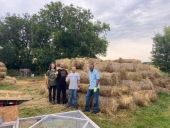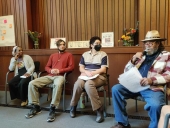




George William wrote:Hey Trace. I’ve been reading your posts from this summer and it’s really incredible. You’re doing great work. I’m also a younger permaculture enthusiast and I’m curious if you have any advice on getting community gardens off the ground. I’m in an urban environment and while there is a community garden in town, there’s A LOT of room for growth. So I’m thinking of different ways of getting access to land and resources to create more food production and community in my city as you appear to be doing. Hope to hear back! Again, keep up the inspiring work!

John Weiland wrote:Trace, You may have come across this information already, but just in case you haven't: Deep Winter Greenhouse information and examples in Minneapolis from the U. of Minnesota. Good luck!
https://www.youtube.com/watch?v=QPk7vTCzPPc
https://extension.umn.edu/growing-systems/deep-winter-greenhouses#design%2C-construction-and-operation-2066620

Douglas Alpenstock wrote:I enjoyed the photos! It's cold and grey here, rolling down to the longest night of the year. Green growing things are inspiring!

Anne Miller wrote:Why is Wheaton Labs a longer stay?

Anne Miller wrote:Thank you for sharing your summer experience.
What a wonderful opportunity to learn and help folks at the same time.
Your photos are lovely.
This reminds me of the experience that folks get at Wheaton Labs though instead of growing vegetables and tending animals, folks learn about permaculture and building.


